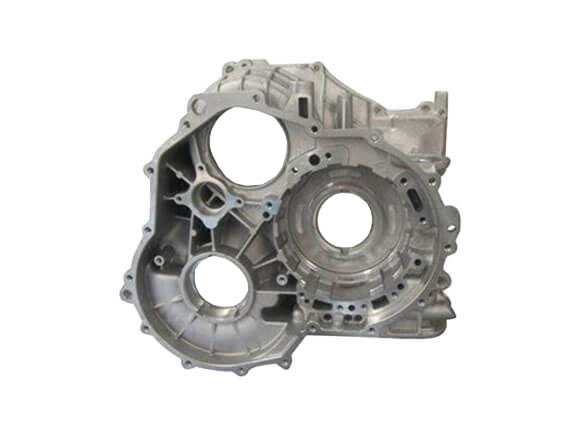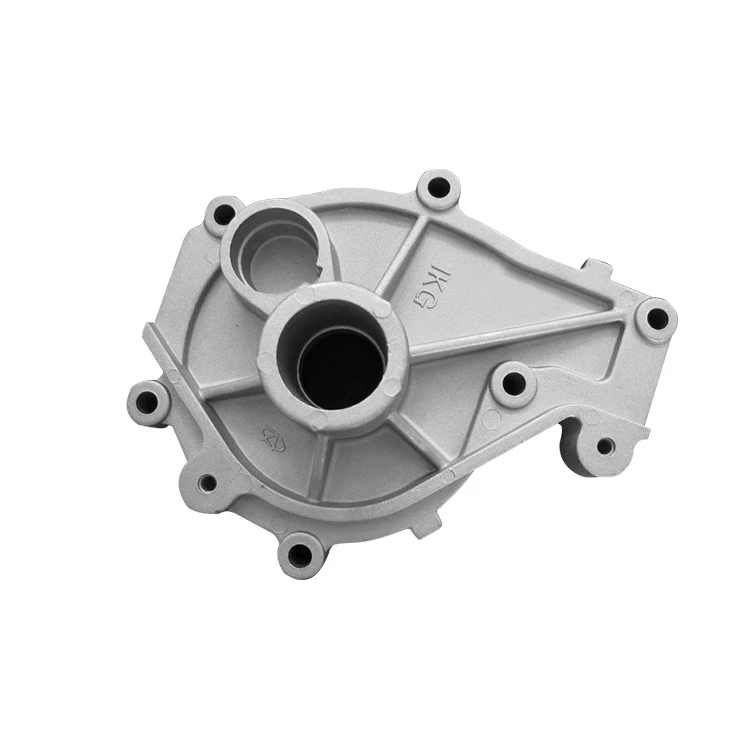The Function of Aluminum Foundries ahead of time Lightweight Production Solutions
Light weight aluminum foundries significantly add to the advancement of light-weight production options. Their ingenious spreading technologies yield high-strength, light-weight components crucial for markets such as vehicle and aerospace. This development not only boosts product efficiency however also advertises sustainability with using recycled products. As these foundries adapt to arising technologies and practices, they lead the means for future advancements in producing efficiency and environmental duty. What exists ahead in this transformative trip?
The Advantages of Lightweight Materials in Production
As markets significantly seek performance and sustainability, the adoption of light-weight products in manufacturing has become a crucial technique - Aluminum Casting Company. These products, especially light weight aluminum and compounds, offer numerous advantages that improve production processes and item efficiency. Largely, their minimized weight adds to reduce power consumption throughout transportation and operation, bring about significant cost savings
Lightweight products assist in the layout of even more complicated geometries, enabling for higher development in product growth. This adaptability typically causes improved capability and efficiency, satisfying the evolving needs of modern-day customers.
In addition, making use of lightweight products can improve the long life of items because of their resistance to deterioration and tiredness. This longevity not just decreases upkeep expenses yet additionally sustains sustainability initiatives, as longer-lasting products add to less waste. To summarize, the advantages of light-weight materials are pivotal in driving efficiency, advancement, and ecological duty in manufacturing.
Innovations in Aluminum Spreading Technologies
Recent improvements in aluminum casting innovations are revolutionizing the production landscape, especially in the manufacturing of lightweight components. Technologies such as high-pressure die casting and vacuum pass away casting have actually substantially improved the accuracy and surface finish of light weight aluminum parts - Precision aluminum casting. These methods enable the production of intricate geometries while reducing material waste and improving mechanical buildings

Furthermore, the execution of real-time tracking systems assures top quality control throughout the casting process, causing more consistent product end results. Collectively, these technologies not only boost the efficiency of light weight aluminum parts however additionally sustain the market's shift towards even more lasting manufacturing practices.
Applications of Light Weight Aluminum Parts in Numerous Industries
While light weight aluminum components have long been made use of in various sectors, their versatility and lightweight properties remain to drive ingenious applications across sectors such as automobile, aerospace, and construction. In the auto industry, light weight aluminum is increasingly made use of for engine blocks, wheels, and body panels, enhancing fuel effectiveness and efficiency. Aerospace manufacturers utilize light weight aluminum for aircraft frameworks and components, taking advantage of its strength-to-weight ratio to improve fuel economy and haul capacity.
In the building and construction industry, light weight aluminum is preferred for home window frameworks, roofing, and structural aspects, providing durability and resistance to deterioration while other decreasing total building weight. In addition, the electrical and electronic devices sectors gain from aluminum's conductivity and light-weight nature, utilizing it in circuitry, rooms, and warmth sinks. These varied applications highlight the vital function of aluminum components, which not just meet market demands but likewise contribute to innovations in product layout and performance across numerous fields.
Sustainability and Power Performance in Light Weight Aluminum Foundries
The aluminum foundry sector plays an important function in advertising sustainability and power efficiency, particularly as need for light-weight parts remains to grow across numerous fields. Foundries are increasingly taking on environmentally friendly practices, such as making use of recycled light weight aluminum, which greatly minimizes power usage and greenhouse gas emissions contrasted to main light weight aluminum manufacturing.
Furthermore, advancements in casting modern technologies boost power performance by maximizing the melting processes and minimizing waste. Techniques like die spreading and financial investment casting enable exact material usage, decreasing excess and scrap.
In addition, lots of factories are investing in eco-friendly power sources to power procedures, additionally reducing their carbon footprint. Implementing energy administration systems allows factories to enhance and monitor energy use, ensuring they operate at peak performance.

Future Trends in Lightweight Manufacturing Solutions
How will arising innovations form the future redirected here of lightweight manufacturing options? Technologies such as advanced products, automation, and additive production are readied to redefine manufacturing procedures. The combination of smart manufacturing innovations, including the Internet of Points (IoT) and synthetic knowledge (AI), will certainly make it possible for real-time surveillance and optimization, enhancing efficiency and minimizing waste.

As sustainability continues to be an extremely important issue, lightweight options will significantly concentrate on recycling and reusing materials, straightening with round economic climate concepts. This advancement in light-weight manufacturing will not only improve item performance yet likewise add to ecological goals, ensuring that the industry stays affordable in a rapidly changing market landscape.
Often Asked Questions
Just How Do Light Weight Aluminum Foundries Make Sure High Quality Control in Production?
Light weight aluminum foundries assure top quality control in production through strenuous screening, standardized procedures, and constant monitoring - aluminum casting. They apply innovative technologies and knowledgeable employees to keep consistency, reduce problems, and fulfill industry criteria throughout the production procedure
What Are the Key Tests Encountered by Aluminum Foundries?
Aluminum foundries deal with challenges such as rising and fall resources costs, preserving manufacturing efficiency, making certain consistent top quality, adjusting to technical developments, and conference environmental guidelines, all of which impact their overall operational effectiveness and competitiveness out there.
How Does Light Weight Aluminum Recycling Influence Shop Workflow?
Aluminum reusing substantially improves factory operations by lowering resources costs, minimizing power consumption, and reducing environmental effect. This lasting method makes it possible for shops to improve efficiency while satisfying increasing demand for lightweight, high-performance aluminum products.
What Abilities Are Required for Employees in Light Weight Aluminum Foundries?
Workers in light weight aluminum foundries need skills in metallurgy, machining, quality control, and safety practices. Effectiveness in running equipment, understanding alloy properties, and analytic are likewise essential for reliable production and maintaining high security requirements.
Just How Do Light Weight Aluminum Foundries Take Care Of Waste Monitoring?
Light weight aluminum shops handle waste via recycling scrap metal, using reliable waste partition strategies, and adhering to ecological guidelines. They carry out lasting practices to minimize landfill payments, making sure that harmful products are thrown away sensibly.
Aluminum foundries considerably contribute to the advancement of light-weight manufacturing options. Current innovations in light weight aluminum casting modern More Info technologies are reinventing the manufacturing landscape, especially in the manufacturing of lightweight elements. While light weight aluminum components have long been utilized in numerous industries, their convenience and light-weight residential properties continue to drive ingenious applications across industries such as auto, aerospace, and building. Additionally, the electrical and electronics sectors benefit from light weight aluminum's conductivity and lightweight nature, using it in electrical wiring, rooms, and warm sinks. The aluminum shop industry plays a crucial duty in advertising sustainability and energy efficiency, particularly as demand for light-weight components continues to expand across different sectors.